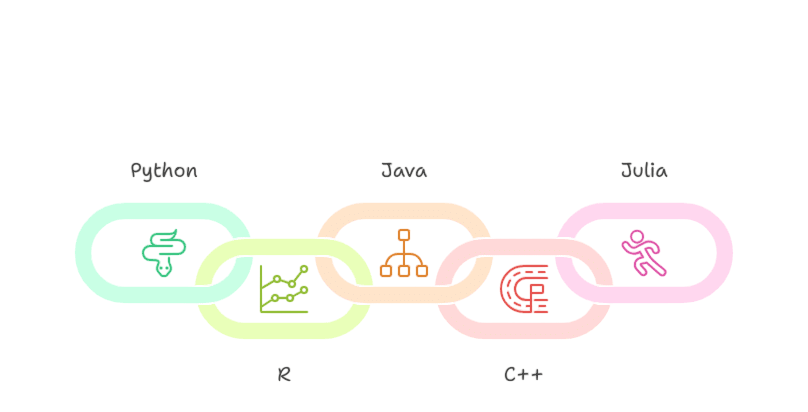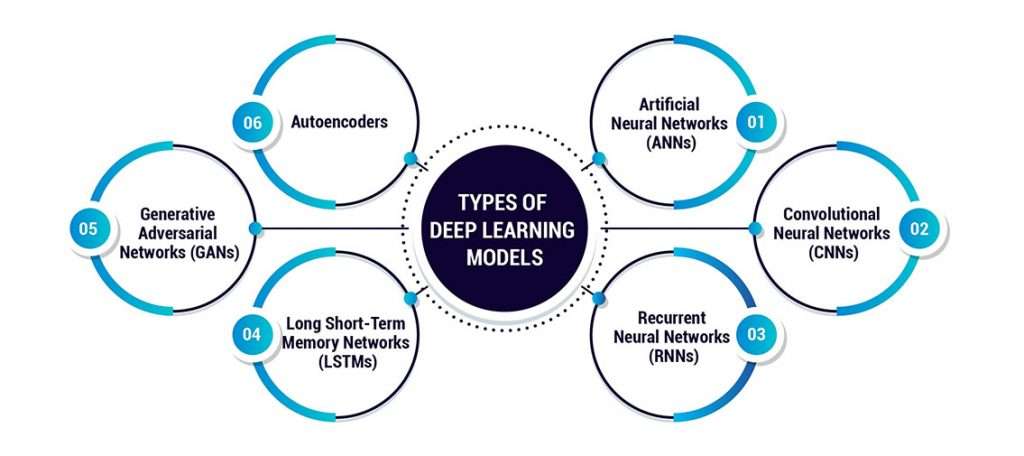
- Who is an AI Engineer?
- Educational Requirements
- Essential Programming Skills
- Machine Learning & Deep Learning Knowledge
- Tools and Libraries to Learn
- Real-World Projects and Experience
- Building a Strong Portfolio
- Interview Preparation
- Conclusion
Who is an AI Engineer?
An Become an AI Engineer is a professional responsible for designing, developing, and deploying artificial intelligence solutions. These experts combine knowledge from computer science, Machine Learning Training , and software engineering to build systems capable of mimicking human intelligence. Their work involves not only creating algorithms and models but also implementing and integrating these models into applications and services used in various industries, from healthcare to finance and autonomous systems.An AI Engineer is a technology professional who designs, develops, and implements artificial intelligence systems that enable machines to mimic human intelligence. These engineers combine expertise in software engineering, Essential Programming Skills , machine learning, data science, and deep learning to create models and algorithms that can analyze data, recognize patterns, and make intelligent decisions. AI Engineers work on building applications such as chatbots, recommendation systems, autonomous vehicles, image and speech recognition, and natural language processing tools. Their role involves gathering and preprocessing data, selecting suitable algorithms, training models, and fine-tuning them to improve accuracy and efficiency. They also focus on deploying AI solutions in Real-World Projects environments, ensuring that models operate at scale and perform reliably. AI Engineers collaborate closely with data scientists, software developers, and business stakeholders to align AI capabilities with organizational goals. To succeed in this role, an AI Engineer needs a strong foundation in mathematics, programming (especially Python), and familiarity with AI frameworks like TensorFlow or PyTorch Deep Learning with Apache Spark and Tensorflow . Additionally, they must stay updated with the latest research and tools in this fast-evolving field. With the growing adoption of AI across industries, AI Engineers are in high demand to help organizations leverage intelligent technologies to solve complex problems and innovate.
Educational Requirements
A career in AI engineering typically requires a solid educational background in:
- Bachelor’s Degree: Typically in Computer Science, Software Engineering, Mathematics, Statistics, or related fields.
- Master’s Degree (Optional but Preferred): Specialization in Artificial Intelligence, Machine Learning, Data Science, or Robotics can enhance job prospects.
- Strong Foundation in Mathematics: Key areas include linear algebra, calculus, probability, and statistics.
- Programming Skills: Proficiency in languages like Python, R, Java, or C++ is essential What Is Machine Learning
- Knowledge of AI and ML Frameworks: Familiarity with TensorFlow, PyTorch, Scikit-learn, and similar tools.
- Online Courses and Certifications: Completing relevant certifications (e.g., Google Professional ML Engineer, AWS ML Specialty) helps demonstrate expertise.
- Research and Projects: Academic projects, internships, or research experience in AI-related topics are highly valued.
- Continuous Learning: Staying updated with evolving AI technologies through workshops, seminars, and advanced courses.
Ready to Get Certified in Machine Learning? Explore the Program Now Machine Learning Online Training Offered By ACTE Right Now!
Essential Programming Skills
AI Engineers must possess strong Essential Programming Skills. Here are the core languages and areas to master:
- Python: The primary language used in AI development due to its simplicity and extensive libraries
- Libraries: NumPy, Pandas, Scikit-learn, TensorFlow, PyTorch, Keras

- R: Used primarily for statistical analysis and visualization
- Java/C++: For performance-critical applications such as robotics or real-time systems
- SQL: For querying structured data
- Git & Version Control: Essential for collaboration and maintaining code integrity
Understanding of object-oriented programming (OOP), functional programming, Decision Trees in Machine Learning and software design patterns is also highly advantageous.
To Explore Machine Learning in Depth, Check Out Our Comprehensive Machine Learning Online Training To Gain Insights From Our Experts!
Machine Learning & Deep Learning Knowledge
- Understanding of ML Concepts: Supervised, unsupervised, and reinforcement learning; model evaluation and validation techniques.
- Familiarity with Key Algorithms: Algorithms like linear regression, decision trees, random forests, SVMs, k-means, and gradient boosting.
- Hands-on with ML Libraries: Experience using tools such as Scikit-learn, XGBoost, and LightGBM for implementing models.
- Deep Learning Fundamentals: Knowledge of neural networks, activation functions, computer vision , backpropagation, and optimization techniques.
- Specialized Architectures: Experience with CNNs (for images), RNNs and LSTMs (for sequences), and transformers (for NLP tasks).
- Framework Proficiency: Skilled in using TensorFlow, Keras, and PyTorch for building and training deep learning models An Overview of ML on AWS .
- Model Tuning and Regularization: Techniques like hyperparameter tuning, dropout, batch normalization, and early stopping.
- Practical Application: Ability to apply ML/DL models to real-world tasks such as classification, regression, segmentation, and generation.

Tools and Libraries to Learn
Proficiency with industry-standard tools and libraries streamlines model development and deployment:
- Scikit-learn: Classical ML algorithms
- TensorFlow & Keras: Deep learning and neural networks
- PyTorch: Flexible and dynamic deep learning framework
- OpenCV: Computer vision tasks
- NLTK, SpaCy, Transformers: NLP processing
- Jupyter Notebook: Interactive coding
- Google Colab: Cloud-based notebooks with free GPU
- Docker & Kubernetes: Containerization and orchestration
- MLflow, DVC: MLOps tools for lifecycle management
- Cloud Platforms: AWS SageMaker, Google AI Platform, Azure ML
- Pandas, NumPy: Data manipulation
- Matplotlib, Seaborn: Visualization
- Hugging Face: Pre-trained models for NLP
Libraries & Frameworks:
Tools:
Data Handling:
Looking to Master Machine Learning? Discover the Machine Learning Expert Masters Program Training Course Available at ACTE Now!
Real-World Projects and Experience
- Start with Foundational Projects: Work on basic projects like image classification, spam detection, or movie recommendation systems to build confidence.
- Solve Domain-Specific Problems: Choose projects in fields like healthcare (disease prediction), finance (fraud detection), or retail (customer segmentation).
- Use Public Datasets: Platforms like Kaggle, UCI Machine Learning Repository, and Google Dataset Search offer datasets to practice and build models.
- Participate in Competitions: Join data science challenges on Kaggle, DrivenData, or Zindi to test your skills and gain exposure to real-world problems Machine Learning Engineer Salary.
- Build End-to-End Solutions: Take projects from data preprocessing through model deployment using tools like Flask, Streamlit, or cloud platforms.
- Collaborate on Open-Source Projects: Contribute to AI or ML projects on GitHub to learn industry best practices and work with experienced developers.
- Document Your Work: Create a GitHub portfolio with clear README files, code, and explanations of your process and results.
- Internships & Freelance Gigs: Gain professional experience by working with companies or on freelance platforms offering AI-related roles.
Preparing for Machine Learning Job Interviews? Have a Look at Our Blog on Machine Learning Interview Questions and Answers To Ace Your Interview!
Building a Strong Portfolio
A strong portfolio is essential for showcasing Become an AI Engineer skills and making a lasting impression on potential employers or collaborators. It should include a variety of real-world projects that demonstrate your ability to apply Machine Learning Training and deep learning techniques to solve meaningful problems. Each project should be well-documented, with a clear explanation of the problem statement, data used, methodology, results, and key takeaways. Hosting your code on GitHub adds credibility and allows others to review your work. Additionally, creating a personal website or blog to present your projects and share technical insights can enhance your visibility and personal brand. Aim to cover different domains such as computer vision, NLP, Essential Programming Skills and recommendation systems to show your versatility. Participating in competitions, contributing to open-source projects, or collaborating on team-based challenges can further strengthen your portfolio. Remember, quality matters more than quantity; a few well-executed,Python impactful projects are far more valuable than many incomplete or shallow ones. Consistently updating your portfolio with recent work also signals your ongoing commitment to learning and growth in the AI field.
Interview Preparation
- Review Core Concepts: Study machine learning and deep learning algorithms, model evaluation metrics, computer vision and data preprocessing techniques.
- Practice Coding: Solve coding problems on platforms like LeetCode, HackerRank, or Codeforces focus on Python and algorithmic thinking.
- Understand Frameworks and Tools: Be proficient with Scikit-learn, TensorFlow, PyTorch, Pandas, and NumPy for practical implementation.
- Prepare to Discuss Projects: Be ready to explain your projects in detail cover the problem, dataset, approach, model choice, and outcomes The Best Machine Learning Tools.
- System Design Basics: Learn about ML system deployment, model serving, and production-level considerations (e.g., latency, scalability, retraining).
- Mock Interviews: Practice with peers or use platforms like Interviewing.io or Pramp for mock AI/ML interviews.
- Review Applied Math: Brush up on linear algebra, probability, statistics, and optimization techniques relevant to model training.
- Stay Updated: Be aware of current trends, ethical AI practices, and emerging tools or models (e.g., GPT, Diffusion Models).
Prepare Behavioral Questions” Use the STAR method (Situation, Task, Action, Result) to structure responses about teamwork, challenges, or decision-making.
Conclusion
Pursuing a career as an AI Engineer is both challenging and rewarding, offering opportunities to work at the cutting edge of technology and innovation. As AI continues to revolutionize industries from healthcare and finance to transportation and entertainment the demand for skilled professionals in this field is rapidly growing. Becoming an AI Engineer requires a strong foundation in mathematics, programming, and Machine Learning Training , along with hands-on experience in deep learning, data handling, and model deployment. Building a diverse and well-documented portfolio through real-world projects is essential to demonstrate your capabilities and set yourself apart in a competitive job market. In addition to Become an AI Engineer, technical skills, certifications and online courses can validate your knowledge and keep you current with evolving tools and frameworks. Participating in competitions, contributing to open-source projects, and collaborating with peers help deepen your understanding and showcase your commitment to learning. Preparing for interviews with a focus on both technical questions and problem-solving scenarios is also key. Ultimately, continuous learning, adaptability, and a passion for solving real-world problems will fuel long-term success in the AI field. Whether you’re just starting or transitioning from another tech role, portfolio, computer vision with dedication and the right approach, you can build a fulfilling and impactful career as an AI Engineer.




